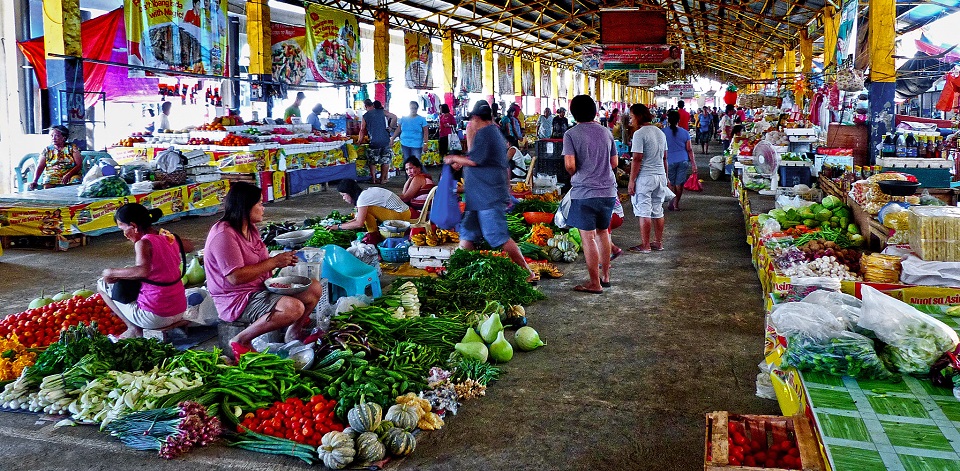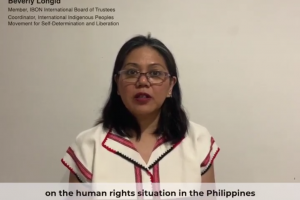The climate crisis has been an impetus for today’s mainstream discourse on sustainable consumption and production (SCP). This is evident from the micro-level through the popularisation of “sustainable living” to the macro-level through United Nations (UN)-led policy formation.
UN-steered SCP discourse is dominated by the idea of “decoupling economic growth from environmental degradation.” Decoupling is focused on minimising resource use and other related strategies such as reuse of waste for production, dubbed as a “circular” economy. However, “SCP-as-decoupling” remains lacking as a strategy because it refuses to recognise the accountability of multinational corporations and transnational corporations (MNCs and TNCs) and the complicit elite-led national governments for the climate crisis. It even places MNCs and TNCs at the centre of the SCP agenda.
The UN has recognised since the latter part of the 20th century that there is a need to change “unsustainable patterns of production and consumption” beginning with the 1987 “Our Common Future” report which included sustainable development to the global agenda. The1992 Rio Earth Summit or the UN Conference on Environment and Development pronounced the urgency of transforming unsustainable consumption and production.
The 1994 Oslo Roundtable on Sustainable Consumption and Production defined SCP as the use of products according to basic needs with minimal resource use and waste to preserve the environment for future generations. The 2002 World Summit on Sustainable Development followed up on these with a draft of a 10-Year Framework of Programmes (10YFP) for SCP; which was adopted in the 2012 UN Conference on Sustainable Development (Rio+20).
The most recent UN policy on SCP is SDG 12. It is one of the 17 Sustainable Development Goals included in Agenda 2030, adopted during the 2015 UN General Assembly. However, despite these initiatives agreed upon by 193 countries and 108 countries claiming to have SCP policies, our planet remains in peril as mainstream discourse veers away from an analysis of the political and economic structures that frame consumption and production.Such analysis reveals that historical unsustainable consumption and production are largely attributable to MNCs and TNCs.
For instance, our plastic culture could be traced to post-World War II production and promotion of plastics by TNCs Dow and Dupont, Monsanto, and BASF. This particular instance provides insight on the insistent focus of SCP discourse on individual consumption; and how it fails to consider how consumption is determined by political and economic structures. Hence, SCP must involve consideration of national development policies and international and national trade and investment.
The One Planet Network, the multi-stakeholder implementing body for SCP and by extension SDG 12, recognises the necessity of “systemic change” but with decoupling as its main strategy. Decoupling, which aims for resource-efficient economic growth, gives room inthe SCP agenda for MNCs and TNCs as it continues to endorse capital accumulationin conjunction with its supposed environmental agenda.
The incongruity of “capitalist development and ecological sustainability” espoused by UN manifests, for instance, in the reality of investor-state dispute settlement (ISDS) clauses in investment and trade agreements. ISDS enables corporations to sue the state party that negatively affects their investments.
An example is the 2009 case of Pac Rim Cayman LLC (bought in 2013 by Australian-Canadian mining TNC OceanaGold) which filed an arbitration case against the Republic of El Salvador for violating the Central America-United States-Dominican Republic Free Trade Agreement (CAFTA) when the government refused to grant environmental permits to the investor consequent to the water crisis and pollution caused by mining. Although the government of El Salvador won the case against OceanaGold/Pacific Rim with a USD 250-million claim for compensation and USD 8 million payment to the government, a civil society letter endorsed by 280 organisations around the world argued that the ISDS case “should never have taken place.”[i]
Neoliberal political and economic structures engender a widening North-South gap and determine how such policies play out. Moreover, although there is wide corporate reporting of supposed TNC “sustainability”in relation to SDG 12, a quick historical look into corporate practices show the opposite of corporate claims on sustainability.
For instance, Chevron’s claims of recycling “more than 99 percent” of water in its production in the US and supporting sustainable energy technologies is disproved by its historical greenhouse gas emissions, toxic waste contamination of land and water, and human rights violations in Southern countries. True systemic change needs to break with the continued emphasis on corporate roles in the agenda of sustainability.
Discourse on SCP must consider the political and economic structures that frame consumption and production. This means that it must shift its framework from “decoupling” that still indulges MNCs and TNCs, to a people-powered SCP. A people-powered SCP addresses the needs of peoples especially in Southern-based countries who usually bear the brunt of negative environmental impacts amidst being deprived of basic needs and services. Moreover, people-powered SCP is driven toward upholding people’s rights and exercising people’s sovereignty;and recognises the central role of the people in sustainability.
People’s rights are “the synthesis of individual and collective rights of the people”[ii] encompassing all aspects—civil, political, economic, social and cultural. People’s sovereignty is realised when these rights are asserted and secured. A people-powered SCP shifts the central role from MNCs and TNCs to the people. From this, every phase and aspect of production and consumption must enable people’s rights and the exercise of their sovereignty—from resisting big extractive TNCs to engaging in agroecology and collective agriculture. UN-initiated and other international policies must be geared toward realising a people-powered SCP to truly address the critical environmental problems that are generated by unsustainable consumption and production. #
[i]stopesmining.org
[ii]IBON International, People-Powered Sustainable Consumption: A visioning and mapping study available at https://iboninternational.org/book/people-powered-sustainable-consumption




